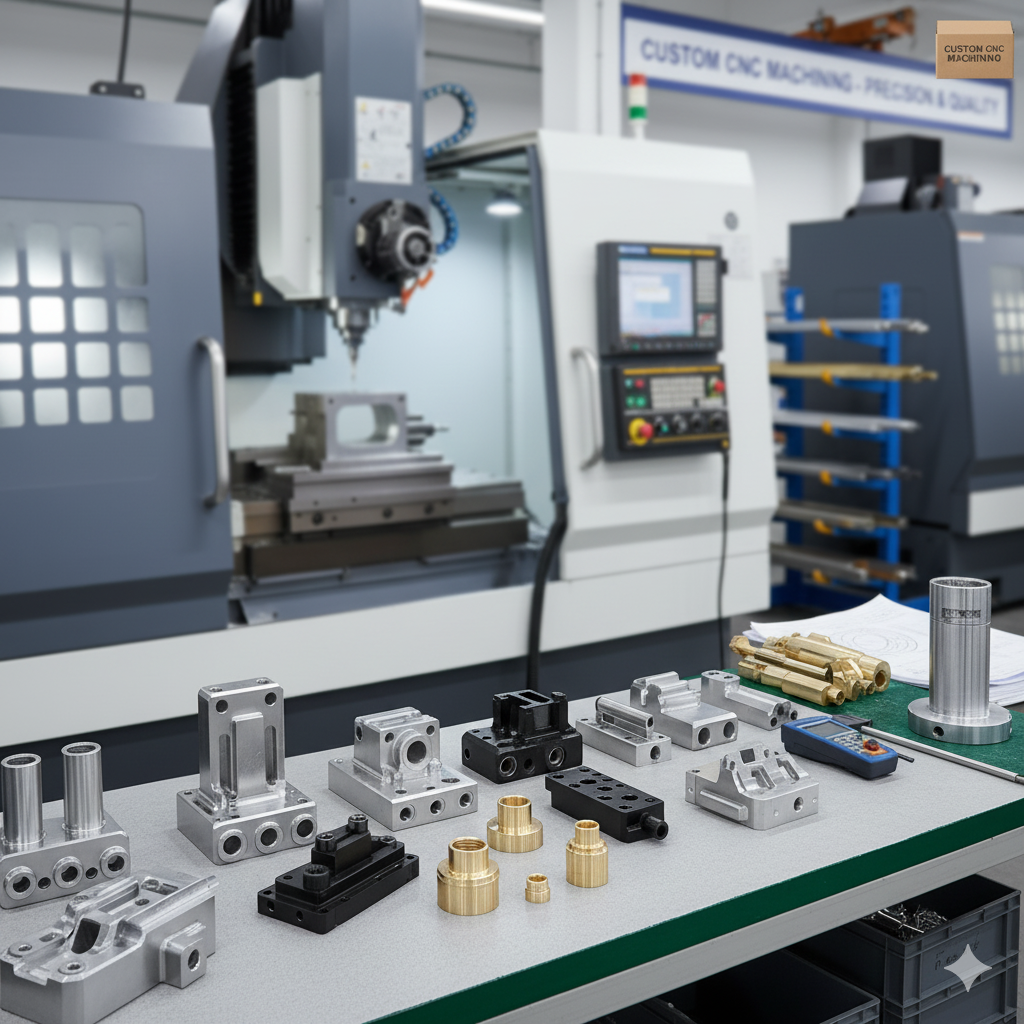
Precision Meets Flexibility: Custom CNC Machining for Unique Manufacturing Needs
Manufacturing today demands more than just speed—it requires flexibility, intelligence, and customization.
Across automotive, aerospace, and medical sectors, engineers face the same challenge: how to produce complex, high-tolerance parts without inflating cost or compromising quality.
That’s where custom CNC machining comes in—a process that blends design adaptability with digital precision to create solutions tailored to each client’s needs.
With advanced systems and an integrated quality framework, Liqin transforms intricate blueprints into reliable, repeatable results.
The Pain Point: When Standard Machining Falls Short
Many companies start with standard machining, only to realize that it can’t handle modern design demands.
Common problems include:
-
Geometry limitations in multi-surface or deep-pocket components.
-
Slow changeover between materials or prototypes.
-
Tolerance drift in long production runs.
-
Inconsistent surface quality, requiring rework.
-
Communication gaps between design engineers and production teams.
These inefficiencies result in lost time, rising costs, and unstable performance—especially for industries where every micron matters.
The Science Behind Custom CNC Machining
Custom CNC machining is not a one-size-fits-all process—it’s an adaptive engineering system.
By integrating CAD/CAM software, multi-axis control, and feedback loops, it bridges the gap between digital design and precision manufacturing.
Core Principles:
-
Design Adaptation: Digital twin simulations detect potential tool collisions before production.
-
Material Mapping: Feed rates, torque, and cooling strategies optimized for each alloy.
-
Dynamic Toolpathing: AI-driven motion control minimizes vibration and tool wear.
-
Real-Time Calibration: Machine sensors auto-correct for thermal drift and mechanical backlash.
-
Data Feedback: Every component generates traceable quality data for audit and improvement.
This engineering logic ensures consistent results even in complex, multi-material applications.
Custom vs. Standard CNC Machining: Where Value Multiplies
| Aspect | Standard CNC Machining | Custom CNC Machining |
|---|---|---|
| Design Flexibility | Fixed programs | Dynamic adaptation for unique parts |
| Tolerance Range | ±0.02 mm | ±0.005 mm |
| Material Support | Limited to common alloys | Multi-metal and composite capability |
| Setup Time | Manual adjustment | Automated reprogramming |
| Scalability | Static | Prototype-to-production transition |
| Process Data | Minimal tracking | Full digital traceability |
The difference lies not only in precision—but in control and adaptability.
Custom CNC machining enables cost-effective production even for low-volume or high-complexity parts.
The Liqin Approach: From Digital Model to Finished Component
At Liqin, custom machining is a structured, transparent process supported by digital control at every stage.
Our Workflow Includes:
-
Design Feasibility Review – Engineering consultation to refine models for manufacturability.
-
Toolpath Simulation – Virtual cutting models reduce trial runs and material waste.
-
Multi-Axis Machining – 3-, 4-, and 5-axis operations handle complex contours and undercuts.
-
Material & Surface Integration – Stainless steel, titanium, aluminum, and engineered plastics all supported.
-
Inspection & Traceability – CMM validation, surface texture analysis, and full data logging.
Each stage ensures not only dimensional precision but also a seamless transition from prototype to full production.
Why Custom CNC Machining Creates Competitive Advantage
1. Reduced Lead Time:
Automation and simulation cut development cycles by up to 40%.
2. Enhanced Performance:
Custom tool paths and multi-material machining ensure structural integrity under stress.
3. Cost Efficiency:
Material waste drops below 2%, and repeat setups are virtually eliminated.
4. Design Freedom:
Engineers can iterate without worrying about machining feasibility.
5. Long-Term Consistency:
Digital production records guarantee repeatability across multiple batches and years.
At Liqin, customization isn’t about deviation—it’s about precision control tailored to unique design logic.
Real-World Applications: Where Customization Drives Results
| Industry | Typical Components | Engineering Focus |
|---|---|---|
| Aerospace | Actuator housings, engine brackets | Lightweight strength, high-temperature stability |
| Medical | Implant housings, surgical guides | Biocompatibility, fine surface finish |
| Automotive | Gear carriers, electronic mounts | Dimensional repeatability, heat resistance |
| Electronics | Connector bases, sensor frames | Miniaturization, corrosion protection |
| Robotics | Joints, arms, control housings | Structural precision, torque resistance |
Each field benefits differently—some seek weight reduction, others exact symmetry—but all rely on custom machining to maintain functional reliability.
Selecting the Right Custom CNC Machining Solutions
The right machining strategy depends on the specific requirements of your industry, design, and production goals.
-
For Prototype Development:
Choose partners who provide rapid prototyping and CAD-to-production turnaround within days. -
For Aerospace or Defense Applications:
Ensure compliance with AS9100 and advanced titanium/tough alloy machining capability. -
For Automotive Components:
Look for manufacturers offering high-speed, automated inspection and reliable batch repeatability. -
For Electronics and Optics:
Prioritize surface accuracy (Ra ≤ 0.8 μm) and precise thermal control to prevent warping. -
For Medical Devices:
Require ISO 13485 conformity, material traceability, and validated finishing for biocompatibility.
A manufacturer like Liqin—equipped with advanced CNC centers and certified quality systems—adapts to every requirement while maintaining process stability.
Frequently Asked Questions (FAQ)
Q1: What’s the main difference between custom and standard CNC machining?
Custom CNC machining is fully adaptable to design variations, tolerances, and material combinations, while standard machining follows fixed templates.
Q2: What materials can Liqin machine?
We handle aluminum, stainless steel, titanium, copper, brass, and engineering plastics.
Q3: Can custom machining support small orders?
Yes, our flexible scheduling supports low-volume prototypes as well as long-term production.
Q4: How do you guarantee accuracy in multi-axis machining?
Through in-process measurement, real-time tool compensation, and CMM verification.
Q5: Do you offer DFM (Design for Manufacturability) assistance?
Absolutely. Our engineering team reviews all CAD data to enhance machinability and reduce cost before production.
Precision Tailored to Every Vision
In manufacturing, precision isn’t just a specification—it’s a mindset.
By integrating simulation, automation, and human engineering expertise, Liqin turns design complexity into production clarity.
Custom CNC machining gives industries freedom to innovate without risking reliability.
From prototypes to production, every part reflects the balance between technical precision and creative adaptability.
To collaborate with our engineering team or request a project analysis, visit the Homepage or contact us through the Contact Us page.

